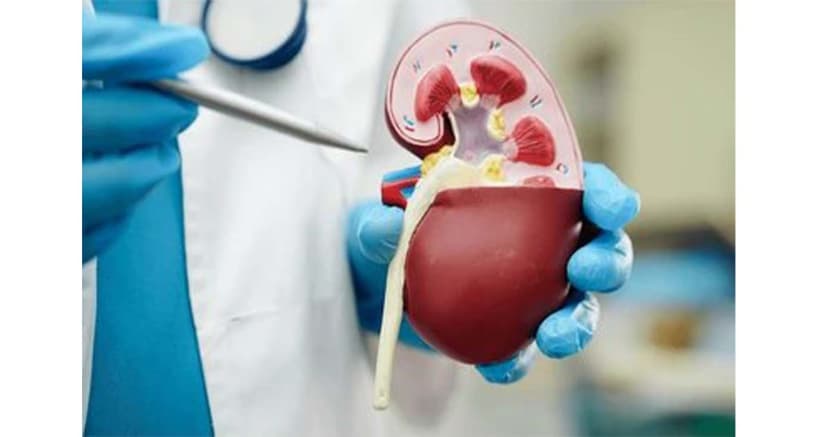Robotic Surgery: Too New to Trust? Myths and Proven Successes
By:

Apex Hospitals
15-09-2024

Robotic surgery has become a revolutionary medical breakthrough, allowing surgeons to perform complex procedures with remarkable precision and minimal invasiveness using advanced robotic systems. Despite its clear advantages, the rise of robotic surgery has been accompanied by myths and misconceptions, raising doubts about its safety and reliability. Robotic surgery has garnered attention from patients and the medical community with its futuristic appeal and cutting-edge technology. However, concerns persist over whether this innovation is too new to be trusted. Let’s delve into these concerns and uncover the proven successes of robotic surgery that demonstrate its true potential.
Myth 1: Robotic Surgery is Too New to Be Safe
One common myth surrounding robotic surgery is that it is too new to be trusted. Many believe the technology hasn’t been around long enough to prove its safety or effectiveness.
Fact: Robotic surgery has been integrated into medical practice for over two decades, with its roots going back almost four decades. The first robot-assisted surgical procedure was reported in 1985 when the PUMA 560 robotic arm was used to place a needle for a brain biopsy under CT guidance. Since then, robotic surgery has seen significant growth, driven by the rising demand for automation in healthcare and a growing emphasis on minimally invasive surgery, which offers faster patient recovery times. Today, robotic surgery is transforming how complex procedures are performed, combining precision with enhanced patient outcomes.
The SSI Mantra, India's first made-in-India robotic system, has also contributed to the global success story of robotic surgery by making it more accessible and affordable in the Indian healthcare system.
Myth 2: Robots Do the Surgery on Their Own
Another misconception is that robotic surgery means a robot performs the surgery independently, without human input. This myth can lead to fear or hesitation among patients who believe they’re putting their lives in the hands of a machine.
Fact: Robotic surgery is 100% surgeon-controlled.
In robotic-assisted surgery, the robot is merely an extension of the surgeon’s hands. The surgeon controls the robotic arms and instruments from a console within the operating room, making exact movements. The robot cannot make decisions or perform surgery without the surgeon’s guidance, ensuring the human element remains central to every procedure.
Myth 3: Robotic Surgery is Risky
Many patients worry that robotic surgery carries more risk than traditional surgery. The idea of advanced technology in the operating room can create anxiety, mainly when patients are unfamiliar with how it works.
Fact: Robotic surgery can reduce risk in many cases.
Robotic-assisted surgery often minimizes risks associated with traditional surgery. Due to the small incisions and enhanced precision provided by robotic systems, patients experience less blood loss, fewer complications, and a lower risk of infection. Additionally, the 3D, high-definition visualization provided by robotic systems allows surgeons to see the surgical area in great detail, enabling more accurate and effective treatment.
Myth 4: Robots can malfunction and injure internal organs.
It can be concerning that if the robotic system malfunctions, it can cause injury to the patient's internal organs.
Fact: The likelihood of a robotic system malfunctioning during surgery is extremely low, with less than a 2% chance of minor issues and only a 0.1% chance of significant malfunctions. Robotic systems are built with multiple safety mechanisms to prevent harm. For instance, if the surgeon diverts attention from the console, the robot’s arms automatically lock to avoid unintended movements. In the event of a power failure or technical issue, the robot remains stationary, preventing accidental damage. Additionally, surgeons and their teams are fully prepared to take over manually if necessary, adding an extra layer of security. The SSI Mantra Robotic Surgery System is engineered to ensure high precision and reliability. Even in the rare malfunction, the system halts safely, protecting the patient from harm.
Myth 5: Robotic Surgery is Only for Certain Procedures
Some believe that robotic surgery is only suitable for certain specific types of operations, such as those in urology or gastrointestinal, leading to the assumption that it’s not versatile enough to be widely trusted.
Fact: Robotic surgery is used in a wide range of medical fields.
Robotic systems are now used for many procedures, including gastrointestinal surgery, oncological surgery, heart surgery, and even orthopaedic surgery. Their flexibility and precision make them suitable for simple and complex surgeries, further broadening their application in modern medicine.
Myth 6: Robotic Surgery is Still Experimental
Patients often perceive robotic surgery as an experimental or unproven method, assuming that it’s only used in cutting-edge facilities or research settings.
Fact: Robotic surgery is a well-established practice in leading hospitals worldwide.
As of today, millions of robotic surgeries have been performed globally with a proven track record of success. Surgeons are extensively trained before operating robotic systems, ensuring the technology is used safely and effectively. Additionally, numerous studies have demonstrated that robotic surgery provides similar or better outcomes than traditional surgery, especially regarding patient recovery time, reduced pain, and fewer complications.
Myth 7: Robotic surgery is too expensive.
Fact: While robotic surgery may have been costly when it was first introduced due to high equipment costs, technological advances and the development of more affordable robotic systems have significantly reduced the price. Apex Hospitals uses the India-made SSI Mantra robotic system, which is explicitly designed to make advanced robotic surgeries more affordable and accessible. This allows patients to benefit from cutting-edge technology without the high costs traditionally associated with robotic surgery. At Apex Hospitals, we prioritize both innovation and affordability for our patients.
Proven Successes in Robotic Surgery
Robotic surgery has revolutionized patient care, particularly for minimally invasive procedures. Patients benefit from shorter recovery times, more minor scars, and less pain. Robotic surgery has often allowed surgeons to perform procedures that would have been too complex using traditional methods. Here are a few proven successes:
1. Faster Recovery: Patients undergoing robotic surgery often return to normal activities more quickly, thanks to reduced trauma to the body and smaller incisions.
2. Improved Outcomes: Robotic surgery provides surgeons with greater precision, which can lead to improved outcomes, especially in cancer surgeries where removing all affected tissue is critical.
3. Wider Availability: Once limited to high-end medical centres, robotic surgery is becoming more accessible. Introducing systems like the SSI Mantra, explicitly designed for markets like India, makes this advanced technology available to a larger population.
Robotic surgery is far from experimental or risky. It is a proven and trusted innovation that has revolutionized complex surgeries. With over 20 years of successful outcomes, robotic-assisted surgery has become integral to modern medicine. Surgeons remain in complete control, and patients benefit from shorter recovery times, less pain, and fewer complications. As robotic surgery continues to evolve, it is clear that this technology is here to stay, providing a safe, effective, and trusted option for various medical needs.
At Apex Hospitals, we are proud to lead the way in robotic surgery with cutting-edge technology and highly trained surgeons. Our advanced robotic systems offer precision and faster recovery times for gastrointestinal, urological, or oncological surgery. If you're considering surgery, trust Apex Hospitals to deliver the highest level of care with the latest medical innovation. Book your consultation today and explore the benefits of robotic surgery firsthand!
FAQS
Related Articles
Connect With Us
Health In A Snap, Just One App.
KNOW MORE
























































































































































